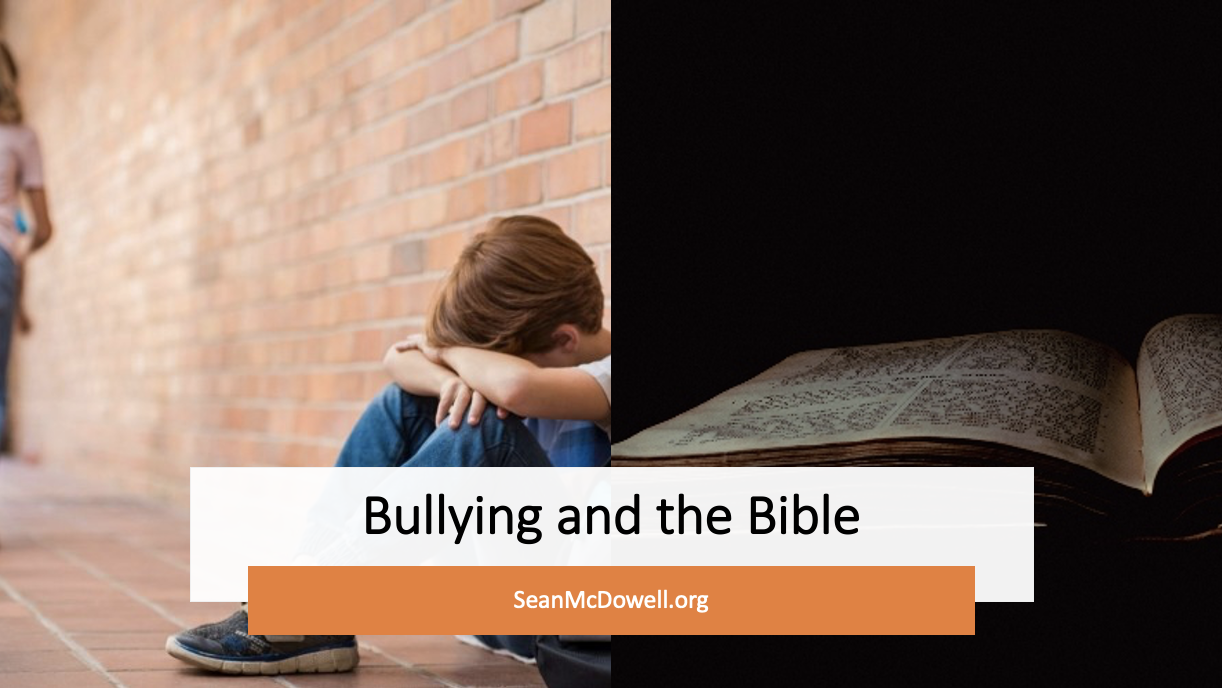SeanMcDowell.org
The Gospels do not use the word “bullying.” Jesus offers no parable about bullies. So, how might Jesus respond to bullying?
While Scripture does not address bullying explicitly, it offers principles we can use to infer how Jesus might have viewed it. And I think we can know how he would respond too.
The opposite of love
First, Jesus calls us to love our neighbors as ourselves (Mark 12:31). Love involves sacrificing power for the well-being of another. Love is others-centered. Bullying involves using power for selfish gain. Bullying is self-centered. Love focuses on the good of another. Bullying involves using another. To bully someone is to fail to love them as Jesus commands.
Caring for the disregarded
Second, followers of Jesus are called to care about justice and to defend the weak. Jesus cared for the disregarded in his society—women, children, the sick, the poor, and those who were demon-possessed. James, the brother of Jesus, says to care about orphans and widows, two more disregarded groups (James 1:27).
Why care about “lowly” people who were frequently rejected by society? Because every human being is made in the image of God and deserves dignity, honor, and respect (Gen. 1:27).
Jesus modeled this in his interactions with lepers. In first-century Palestine, lepers were considered cursed by God. They were required to live outside of cities, have no contact with anyone, and cry out “Unclean! Unclean!” if anyone approached (Lev. 13:45-46). Because of their loathsome skin disease, lepers were truly societal outcasts.
Yet one leper risked everything by approaching Jesus. Would Jesus possibly consider him worthy of being healed? Rather than turning away, ignoring him, or mocking him, Jesus was “filled with compassion” and did the unthinkable: he touched him and made him well (Mark 1:40-45).
Rather than taking advantage of the weak and vulnerable, Jesus humbled himself and cared for them.
How Jesus would respond to bullying
Jesus touched the untouchable. He loved the unlovable. He cared for the disregarded, weak, and vulnerable. Even those who were excluded by society could be included in his love. If Jesus were physically present today, he would stand up to bullies, have compassion on those who are bullied, and never be a bystander.
Will we do the same?
For practical steps on how to respond biblically to bullying, check out my latest book: A Rebel’s Manifesto: Choosing Truth, Real Justice, & Love amid the Noise of Today’s World.

